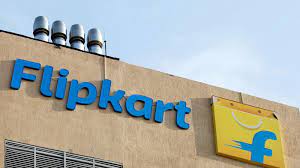Flipkart, India’s leading e-commerce giant, is poised to venture into the quick commerce sector, as per Entrackr’s report citing insider sources. The company aims to strategically establish dark stores in key cities like Bengaluru, Delhi (NCR), and Hyderabad, with plans to introduce 10-15 minute deliveries in around a dozen cities within the next six to eight weeks.
This move into quick commerce underscores Flipkart’s strategic initiatives, evidenced by recent launches such as same-day delivery in 20 cities and the introduction of flower and cake deliveries during the Valentine’s season in February 2024.
Flipkart is anticipated to offer a wide-ranging product catalogue, focusing on fast-moving consumer goods (FMCG), groceries, daily essentials, electronics, and fashion, setting itself apart from existing competitors.
Competitive Landscape and Market Trends:
The quick commerce market features established players like Blinkit, Swiggy Instamart, and Zepto, which have been expanding their offerings. These are the competitors Flipkart will directly contend with.
Leading quick commerce players, including Blinkit, Swiggy Instamart, and Zepto, have achieved significant scale, with Blinkit processing around 6 lakh orders daily, Swiggy Instamart and Zepto handling approximately 5 lakh and 3 lakh orders respectively.
Financial data reveals Blinkit’s average revenue run rate at ₹12,000 crore, Swiggy Instamart’s ARR between ₹8,000-8,500 crore, and Zepto’s gross merchandise value nearing ₹7,000 crore.
A Flipkart spokesperson conveyed, “Over the past few months, we have made several investments to enhance our delivery capabilities, including adding same-day delivery in 20 cities. This covers mobiles, essential items, electronics, home appliances, fashion, books and lifestyle products. We are committed to meeting evolving customer expectations and delivering excellence in value, selection and speed, with more initiatives expected on this front in the coming months.”
Anticipating Shift in Market Dynamics:
Despite robust growth, the quick commerce market confronts sustainability and competitive challenges. Some players, like Dunzo, backed by Reliance and Google, have faced revenue declines and funding hurdles.
Talks of potential acquisitions, such as Flipkart’s discussions with Dunzo, indicate ongoing consolidation within the market.
Industry experts foresee a shift in market dynamics, with quick commerce gaining prominence over traditional e-commerce in India. The total addressable market for quick commerce in the country is estimated at nearly $45 billion, according to a 2022 Redseer report.
Significantly, quick commerce players like Blinkit, Swiggy’s Instamart, and Zepto have demonstrated resilience, instilling investor confidence in the concept’s future in India.

